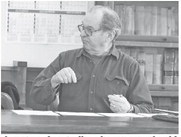County budget calls for slight tax hike


Taylor County taxpayers will see a slight increase in the county portion of their property taxes this December.
At Wednesday’s county board session, supervisors approved the 2021 budget with a local tax levy of $12,287,430, which translates into a tax rate of $8.18 per $1,000 of equalized value. This is an increase of $.04 per $1,000 over last year, or $4 on a $100,000 home.
Supervisor Mike Bub was the only no vote on the budget. When asked after the meeting he stated he objected to needing to apply $300,000 in fund balance to balance the budget, as well as expressing concerns over the county’s continued use of its health insurance consultant and plan choice. Bub said other options were available. Bub also renewed his concerns that the budget summary presented to the board for approval was difficult to follow and understand.
The county’s 2021 budget is largely a status quo budget from previous years with the only significant change brought during the budget session increasing the amount of the county’s bridge aid levy by $22,191. Under the county bridge aid program, the county splits the cost of replacing qualified culverts and bridges with participating municipalities. The total levy for bridge aid projects was $134,724.
In addition to setting the tax levy and budget for the coming year, supervisors approved the sale of $9 million in general obligation promissory notes. The borrowing had been authorized last spring to go toward the construction of a middle-mile broadband network for the county as well as other projects.
Jeff Belongia a financial advisor with Huntington Securities of Waukesha reported on the sale of the promissory notes, stating the county’s true interest cost for the debt issue was 1.5661 which includes all county costs related to issuing the debt.
Belongia said that while he never encourages clients to issue debt, that he was happy the county was able to be in the market at this time when interest rates are among the lowest he has seen in his 40 years in the profession.
He said the county’s ratings were helped by the fact that in general people in this region are frugal and don’t enter into debt lightly.
He said they are in a situation where the cost of equipment and materials is going up in cost at a much higher rate than the 1.56% interest rate they will pay on the money over 10 years.
Belongia did caution the county board noting that one of the few ways a municipality can impact its credit rating is through spending its fund balance. He said it is seen negatively if the fund balance is spent down.
School forest
After a lengthy discussion, supervisors voted to remove a deed restriction on two school forest parcels owned by the Gilman School District.
The school district is looking to sell the parcels which are located in the towns of Taft and Cleveland and use the revenue to make improvements adding trails, an outdoor education center and shelter at the school’s primary forest parcel in Roosevelt. The parcels the school wishes to sell had been tax deed parcels transferred to the school by the county in 1952 with the restriction that they revert to county ownership if no longer needed by the school.
Supervisor Lester Lewis opposed removing the restrictions stating that the land should revert to the county and the county should sell it and bring the money from the sale into the general fund. He said he would support any of the school districts in the county coming and seeking power line impact fee funds for any school forest improvements. He suggested an amount of $150,000 to be split between the three area school districts.
“This is the way governments should work,” said supervisor Ray Soper in support of removing the deed restriction. He said people elected people to both the school and county boards to solve problems. “This is a very simple way to solve a problem,” he said, noting it was clear that the money from the sale would be used for educational purposes to enhance outdoor and environmental education. Gilman district administrator Wally Leipart said the district would hope to sell the parcels at fair market value. He estimated that even at $1,000 an acre they would hope to gain $90,000 from the sale which would go toward $150,000 worth of improvements they hope to make. He said the money from the sale of the parcels would be placed in a segregated account.
In the end Lewis was the only no vote, with supervisor Rollie Thums absent.



